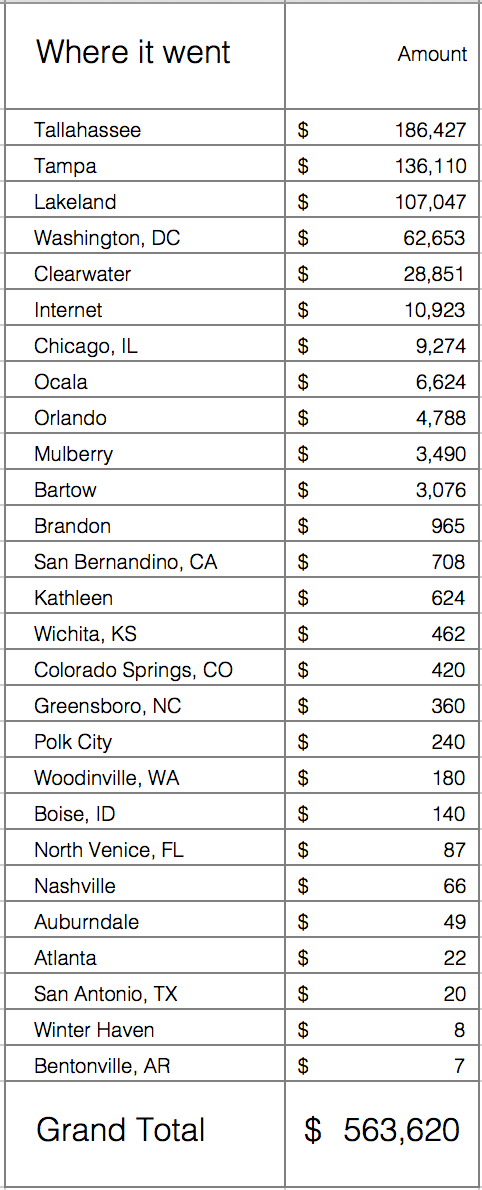Follow the money, back and forth
- Michael Maguire

- Oct 21, 2017
- 3 min read

Much has been made of the value and volume of the political campaign contributions in this year's city election cycle.
Assessments. Assertions. Allegations. Accusations.
We have all been often advised to "follow the money" in politics, in business deals, or in any situation where we believe it will reveal a hidden purpose or agenda. And it often does of course, so we persist.
However, following the money back to its source is only half of the equation. Finding where it goes is the other, and there are some important features of local campaign contributions that can make this even more important than finding where it came from.
To begin with, all candidates and causes are required to report both contributions and expenditures every month right up to election day. This is how we know who gave what to whom and how it was spent.
Through September, the grand total of contributions is more than $980,000, and will likely exceed one million before we vote. Expenditures have already topped $560,000.
This website reports both for each candidate, and the organizations associated with the proposed City Charter amendment. Start with the Financial Reports tab in the City Election menu.
And now for the rules:
An individual may contribute up to $1,000 to any candidate, or to each of them. Businesses and political action committees, are also limited to $1,000 to any given candidate. The candidates themselves may "loan" their campaign as much as they wish. Many contributors have provided funding to multiple recipients. In some cases, multiple family members - acting as individuals of course - have contributed to one or more of the contenders.
As the money is spent, it is reported: to whom, for what, how much, and where. When the election is over, each candidate must file a "termination report" indicating how any unspent funds were disposed of. Typically, candidates first repay their loans to themselves, followed by pro-rated refunds to contributors, followed by donations to worthy causes.
None of it is kept. None of it.
Hard to see how money buys influence in this equation. But let's suggest that successful candidates might be more likely to listen, consider, and act on behalf of those who expressed their support with their checkbooks.
Well, okay, so what? Who will elected officials respond to except for those who make themselves known? If some can do it financially, can't others do it personally?
Our votes will put them in office, not somebody else's money, and we can make them aware of that by continuing to be active and engaged after we vote.
Call. Write. E-mail. Message. Meet up. Attend public meetings. Speak up.
We can't ask people to listen to something they can't hear.

So, what is all this money for? The list includes the obvious, such as signs and T-shirts and campaign buttons and such, but also postage, accounting, supplies, professional marketing, social media and website management, legal services, and consulting.
And who gets it? Your friends and neighbors who own or work for local businesses that provide these products and services. In other words it fuels the local economy and supports or creates jobs. For people, voters, citizens.
Some of it leaves town of course. And maybe it's worth discovering where it went and why. If no local provider can meet a particular campaign need, then the money needs to go where it can find it. But "if" is the operative word. If we are to consider the impact of money in politics, we would be well served by knowing its destination as well as its origin.
The "local" economy - Polk county - has collected less than 20 percent of the total spending to date. Nearly 70 percent went to Tallahassee, Tampa, and Washington, DC. We think "why" and "what for" are legitimate questions that may certainly have perfectly sensible answers, but we are sure they ought be asked.
In the final analysis, a few hundred people with hundred-dollar bills cannot determine the direction of a community of a hundred thousand citizens, unless we let them.
Vote!




















Comments